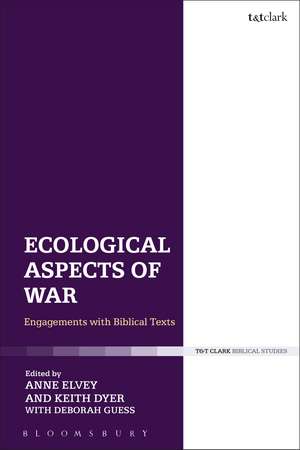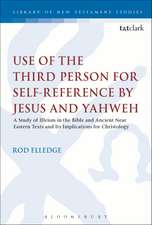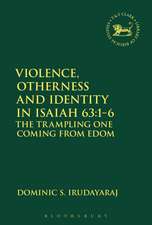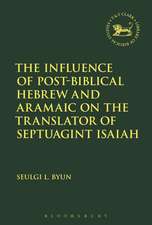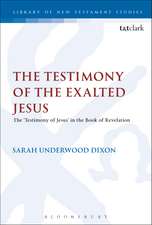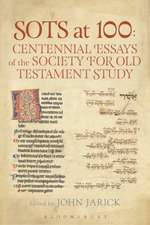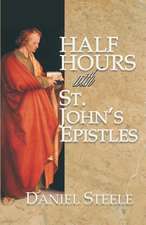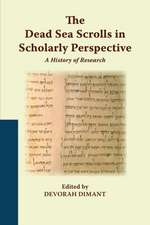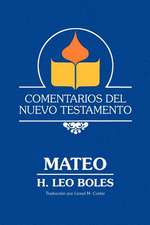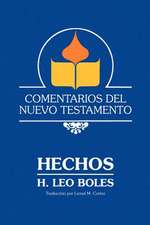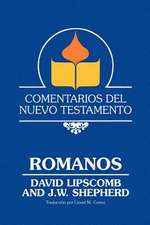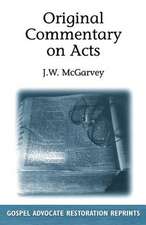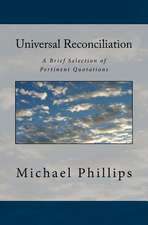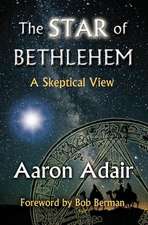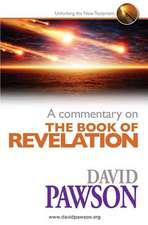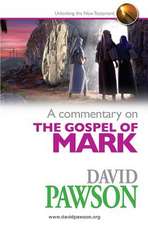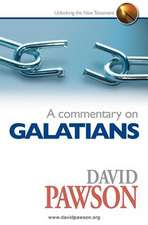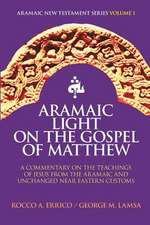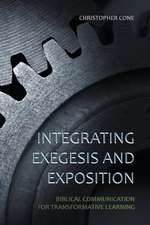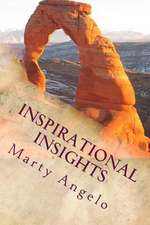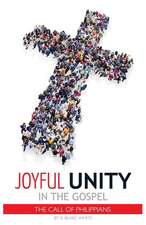Ecological Aspects of War: Engagements with Biblical Texts
Editat de Dr Anne Elvey, Dr Keith Dyer, Dr Deborah Guessen Limba Engleză Hardback – 9 aug 2017
| Toate formatele și edițiile | Preț | Express |
|---|---|---|
| Paperback (1) | 229.86 lei 6-8 săpt. | |
| Bloomsbury Publishing – 20 feb 2019 | 229.86 lei 6-8 săpt. | |
| Hardback (1) | 714.35 lei 6-8 săpt. | |
| Bloomsbury Publishing – 9 aug 2017 | 714.35 lei 6-8 săpt. |
Preț: 714.35 lei
Preț vechi: 1027.57 lei
-30% Nou
Puncte Express: 1072
Preț estimativ în valută:
136.71€ • 142.20$ • 112.86£
136.71€ • 142.20$ • 112.86£
Carte tipărită la comandă
Livrare economică 14-28 aprilie
Preluare comenzi: 021 569.72.76
Specificații
ISBN-13: 9780567676399
ISBN-10: 0567676390
Pagini: 208
Dimensiuni: 156 x 234 mm
Greutate: 0.47 kg
Editura: Bloomsbury Publishing
Colecția T&T Clark
Locul publicării:London, United Kingdom
ISBN-10: 0567676390
Pagini: 208
Dimensiuni: 156 x 234 mm
Greutate: 0.47 kg
Editura: Bloomsbury Publishing
Colecția T&T Clark
Locul publicării:London, United Kingdom
Caracteristici
Examines intersections between war studies and biblical studies with a focus on the non-human world
Notă biografică
Anne Elvey received a PhD from Monash University in 2000, and is currently an Honorary Research Associate of Trinity College Theological School, University of Divinity, Australia.Keith Dyer teaches New Testament at Whitley College, Australia, and is an Associate Professor of the University of Divinity, Australia.Deborah Guess is a Research Associate at Pilgrim Theological College, University of Divinity, Australia.
Cuprins
List of tablesNotes on contributorsAcknowledgementsList of abbreviations1. Introduction: Ecological Aspects of War - engagements with biblical texts, Keith Dyer and Anne Elvey, University of Divinity, Australia2. 'A bow in the clouds' (Gen 9:13): YHWH's qeset and the Rainbow Serpent as Metaphors of Life and Destruction - Jeanette Mathews, Charles Sturt University, Australia3. Drones over Sodom: Resisting the Fantasy of Security - Carolyn Alsen, University of Divinity, Australia4. Reading the Magnificat in the Contemporary Contexts of International Conflict and Climate Change - Anne Elvey, Monash University and University of Divinity Australia5. Dealing with the Enemy: ecological Reflections out of Luke's story of Jesus's Trial on the Mount of Olives (Luke 22.39-53) - Michael Trainor, Austrailian Catholic University, Australia6. The Death of Absalom: The Forest is Mightier than the Sword - Marie Turner, Flinders University, Australia7. Desolate Land/Desolate People in Jeremiah and Lamentations - Elizabeth Boase, Flinders University, Australia8. Violence and Destruction in Opposition to Justice and Righteousness - Anne Gardner, Monash University, Australia9. The Four Horsemen of the Apocalypse and the Consequences of War (Rev 6:1-11) - Keith Dyer, University of Divinity, Australia9. War, ecology and engagements with biblical texts: a response - David Horrell, University of Exeter, UKBibliography
Recenzii
.this volume is a very useful resource for anyone interested in ecological readings of the text. This volume also demonstrates various ways to bring modern sociopolitical issues, beyond ecology alone, into conversation with the biblical text and therefore serves to help generate further research.
This ground-breaking collection takes ecological hermeneutics - particularly Earth Bible readings - in a new direction, exploring ecological aspects of war in dialogue with various biblical or secular texts and contexts. Eco-justice and eco-poetic connections are formed between sacred texts in the Jewish and Christian traditions and the pressing cultural issues of today, such as war, ecological destruction, refugees and our interdependency and relationality with human and 'more-than-human' species. The text contributes to the endeavour to move away from readings that are andro- and anthropocentric, and towards reading in solidarity with the Earth community. This collection is most timely, as the need for resisting the co-option of sacred texts and traditions in the interests of war is now more pressing than ever, and will be of interest to readers engaging in the fields of cultural, post-colonial and feminist studies, and contemporary eco-justice and eco-poetic readings of sacred texts in the Jewish and Christian traditions.
Placed at the point of intersection between war, ecological violation, and contextually sensitive biblical interpretation, this set of studies not only poses but also affirmatively answers the question: 'can creative readings of biblical texts contribute to the critical task of living together peaceably and sustainably?'. With each essay written for a symposium and revised in light of subsequent discussions, the conversation continues within this volume by virtue of an illuminating response to the collection as a whole, provided by David Horrell. In published form, these studies invite further dialogue on the relatedness and relationships - even entanglement! - at the interface between war, ecology, and biblical interpretation. To join this vital conversation, take and read.
This exceedingly rich, frequently surprising set of essays on biblical representations of war and the Earth demonstrates how biblical ecocriticism can intersect incisively with other important, ethically fraught trajectories of biblical scholarship, not least the empire-critical and postcolonial. The volume merits wide readership.
The series as a whole is a significant development with some distinguished contributors presenting now and others lined up for the future.
This ground-breaking collection takes ecological hermeneutics - particularly Earth Bible readings - in a new direction, exploring ecological aspects of war in dialogue with various biblical or secular texts and contexts. Eco-justice and eco-poetic connections are formed between sacred texts in the Jewish and Christian traditions and the pressing cultural issues of today, such as war, ecological destruction, refugees and our interdependency and relationality with human and 'more-than-human' species. The text contributes to the endeavour to move away from readings that are andro- and anthropocentric, and towards reading in solidarity with the Earth community. This collection is most timely, as the need for resisting the co-option of sacred texts and traditions in the interests of war is now more pressing than ever, and will be of interest to readers engaging in the fields of cultural, post-colonial and feminist studies, and contemporary eco-justice and eco-poetic readings of sacred texts in the Jewish and Christian traditions.
Placed at the point of intersection between war, ecological violation, and contextually sensitive biblical interpretation, this set of studies not only poses but also affirmatively answers the question: 'can creative readings of biblical texts contribute to the critical task of living together peaceably and sustainably?'. With each essay written for a symposium and revised in light of subsequent discussions, the conversation continues within this volume by virtue of an illuminating response to the collection as a whole, provided by David Horrell. In published form, these studies invite further dialogue on the relatedness and relationships - even entanglement! - at the interface between war, ecology, and biblical interpretation. To join this vital conversation, take and read.
This exceedingly rich, frequently surprising set of essays on biblical representations of war and the Earth demonstrates how biblical ecocriticism can intersect incisively with other important, ethically fraught trajectories of biblical scholarship, not least the empire-critical and postcolonial. The volume merits wide readership.
The series as a whole is a significant development with some distinguished contributors presenting now and others lined up for the future.
